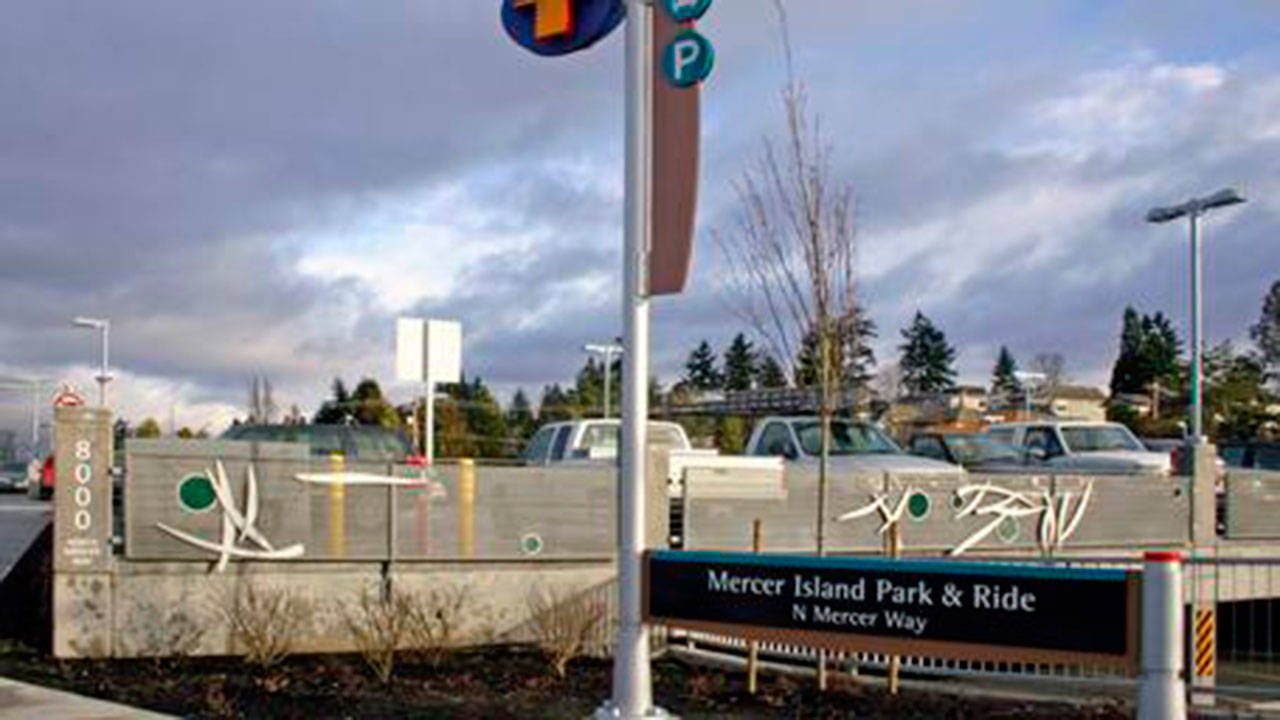The reconfiguration of Interstate 90 changed the way commuters can get on and off the Island, shifting traffic patterns and raising questions about the future of mobility in the city, where parking is already an issue.
Mercer Island got a $10 million settlement from Sound Transit to address those uncertainties, and one of its first potential solutions is an innovative one: partnering with companies like Uber and Lyft for ridesharing services.
Representatives from both companies pitched pilot projects to the Mercer Island City Council on Dec. 5, highlighting how their services can make the residents’ commutes more reliable and the city’s existing infrastructure more efficient.
At the city’s transportation and mobility open house on Nov. 29, a number of residents expressed their desire for increased commuter parking. The Mercer Island Park and Ride currently fills up by about 7 a.m., with an estimated 50 percent coming from off Island.
To ease the parking crunch, City Manager Julie Underwood began talking to Uber and Lyft about solutions for the first-last mile connection, which refers to the beginning or end of an individual trip made primarily by public transportation. The settlement agreement includes $226,900 for identifying and implementing first-last mile solutions, which could be increased if other traffic and safety enhancements can be addressed for less than $5.1 million.
A pilot program with one or both of these ridesharing companies could include Island-only trips focused on transporting riders to and from the park and ride, with the city subsidizing the entire fee or a portion of it.
Jackson Taylor, operations and logistics manager at Uber, said the company is addressing the capacity and sustainability issues that come with individual private car use, and planning for a future where transportation is becoming more automated, shared and electric. He said Uber has offered these types of subsidized programs in Seattle before, but not on Mercer Island, calling it an “unmet opportunity.”
Taylor said the company could partner with the city on a 12-week pilot that would cost $3,396, calculated based on the number of trips taken per week on the Island currently.
For users using a discount code, Uber would split the cost of the ride 50/50 with the city on trips beginning or ending at the park and ride during the pilot. Councilmembers Wendy Weiker and Dan Grausz praised the innovative idea, but expressed reservations about it being initially free for users.
“That service has a value and that should be recognized,” Grausz said. “For this to be a success, there has to be predictability as to a fare.”
Todd Kelsay, who worked as the director of transportation and emergency management at the Mercer Island School District before joining Lyft as its general manager in the Pacific Northwest, said that the average vehicle is only used 4 percent of the time.
Lyft committed to connecting communities through better transportation, he said. The company has done several public-private partnerships, including for first-last mile, suburban solutions, paratransit, guaranteed ride home, parking congestion and a jobs access program.
One program in the city of Boulder encouraged people to shop downtown during the holidays. To combat parking issues, the city subsidized rides into the downtown core, and shops provided validation codes for the trip home.
“There’s an incentive for you to give it a try,” Kelsay said. “The incentive would be monetary, and lifestyle. You wouldn’t have to stress about getting to the park and ride at 7 a.m. or earlier.”
Both companies explained the merits of their carpooling services, UberPool and Lyft Line, where users can share a ride with others going the same way for a lower fare.
The council discussed if these pilot projects would be the best use of the settlement funds, and whether the should city invest in emerging technology, a new parking structure or another solution. The city does not have a transportation planner on staff at the moment, and Deputy Mayor Debbie Bertlin questioned if hiring new staff would be a better first step.
“Spending $70,000 to ensure we spend $10 million well seems like a good return on investment,” she said.
The city is also considering a partnership with the University of Washington’s Mobility Innovation Center, according to its agenda bill, or forming a Blue Ribbon Commission with experts and residents.
The agenda bill mentions many other potential pilot projects, including bikesharing, carpooling apps and King County Metro’s Innovation Mobility Program. It also addresses parking options, including the South Luther Burbank lot, Town Center temporary parking and a public-private partnership with a downtown property owner.
For more, see www.mercergov.org/CouncilMeetings.


